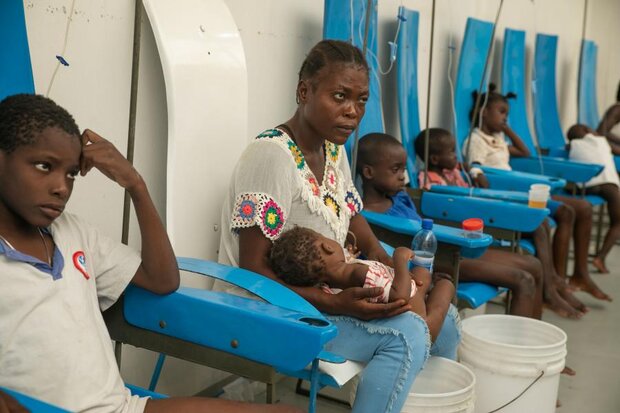In a statement on Tuesday, the UN Office for the Coordination of Humanitarian Affairs (UN-OCHA) appealed for $145.6m to help Haiti contain the outbreak, which began in early October, and provide much-needed assistance to its citizens, Al Jazeera reported.
More than 7,200 people have been hospitalized with cholera in Haiti and at least 155 have died as of Saturday, according to the latest figures (PDF) from the Haitian public health department. But the real figures are believed to be higher due to under-reporting.
“Cholera is a preventable and treatable disease, and based on their experience and expertise, national institutions quickly put together a response strategy with the determined support of the entire local and international humanitarian community,” UN Resident and Humanitarian Coordinator, Ulrika Richardson, said in Tuesday’s statement.
“However, the surge in cases in recent weeks and the rapid spread of cholera in the country is worrying,” Richardson said.
Haiti’s response to the cholera outbreak has been complicated by increased gang violence and instability, which skyrocketed in the aftermath of President Jovenel Moise’s assassination in Port-au-Prince last year.
A weeks-long gang blockade on a petrol terminal in the capital that began in September led to water and electricity shortages, crippling the Haitian healthcare network and prompting experts to warn that the country faced a “time bomb for cholera”.
Caused by drinking water or eating food contaminated with cholera bacteria, the illness can trigger severe diarrhoea as well as vomiting, thirst and other symptoms. It also spreads rapidly in areas without adequate sewage treatment or clean drinking water.
Haiti had last reported a cholera case more than three years ago after a 2010 outbreak linked to United Nations peacekeepers caused approximately 10,000 deaths and more than 820,000 infections.
That outbreak was tied to a sewage leak from a UN peacekeeping base, spurring condemnation and sowing public distrust in the international body across Haiti. The UN apologized in 2016 for its role in the epidemic.
In early October, a World Health Organization (WHO) official said the agency was submitting a request for cholera vaccines for Haiti.
The WHO’s Americas branch, the Pan American Health Organization, told AP that it is supporting Haiti’s government in preparing a request for vaccines as well as planning and implementing vaccination campaigns. But it is not clear if and when that might happen.
Meanwhile, crippling poverty and a lack of access to sanitation and clean water have left thousands of Haitians vulnerable; the WHO has warned that as many as 500,000 people are at risk of contracting cholera.
ZZ/PR

























Your Comment